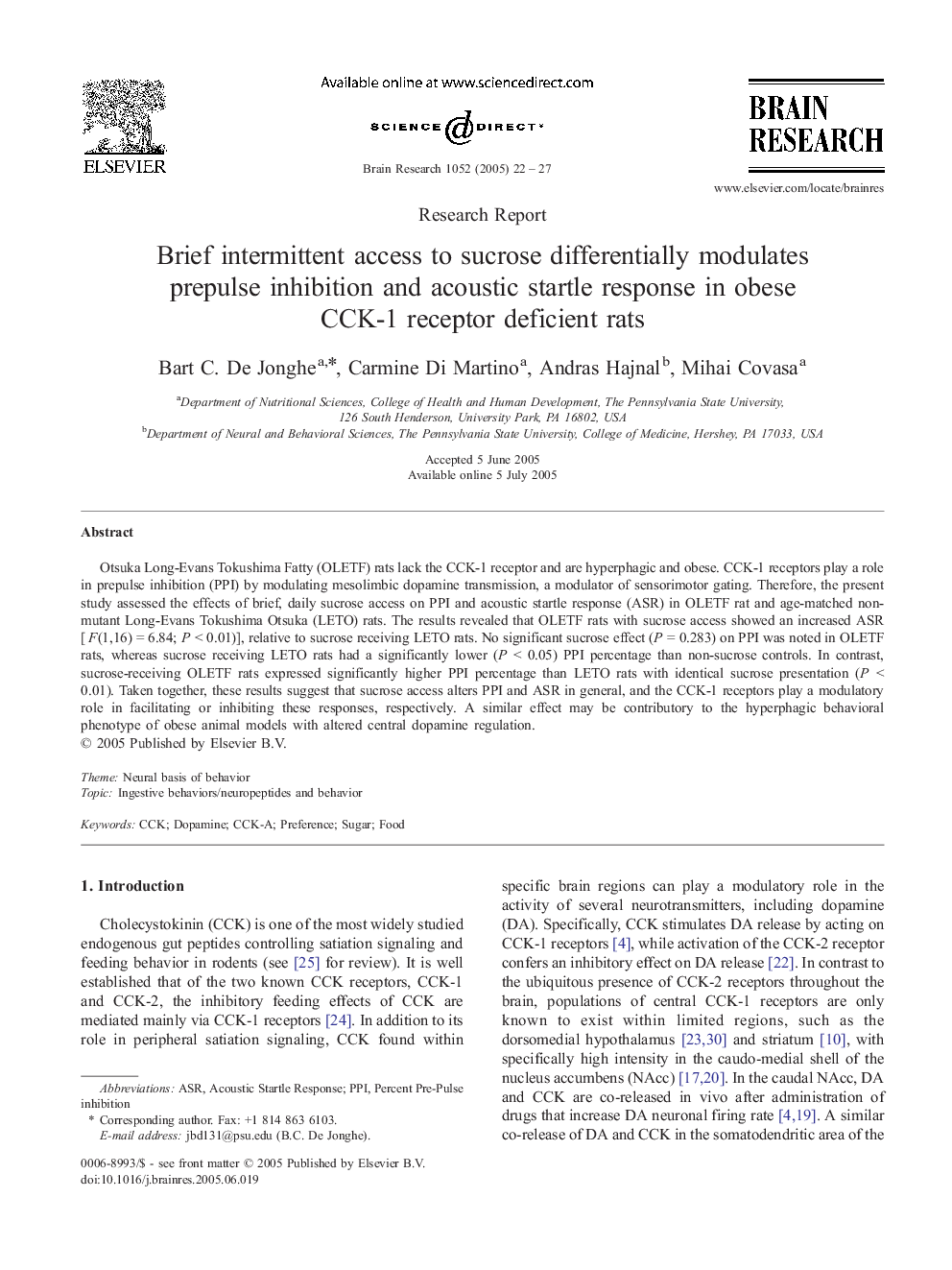| Article ID | Journal | Published Year | Pages | File Type |
|---|---|---|---|---|
| 9415963 | Brain Research | 2005 | 6 Pages |
Abstract
Otsuka Long-Evans Tokushima Fatty (OLETF) rats lack the CCK-1 receptor and are hyperphagic and obese. CCK-1 receptors play a role in prepulse inhibition (PPI) by modulating mesolimbic dopamine transmission, a modulator of sensorimotor gating. Therefore, the present study assessed the effects of brief, daily sucrose access on PPI and acoustic startle response (ASR) in OLETF rat and age-matched non-mutant Long-Evans Tokushima Otsuka (LETO) rats. The results revealed that OLETF rats with sucrose access showed an increased ASR [F(1,16)Â =Â 6.84; PÂ <Â 0.01)], relative to sucrose receiving LETO rats. No significant sucrose effect (PÂ =Â 0.283) on PPI was noted in OLETF rats, whereas sucrose receiving LETO rats had a significantly lower (PÂ <Â 0.05) PPI percentage than non-sucrose controls. In contrast, sucrose-receiving OLETF rats expressed significantly higher PPI percentage than LETO rats with identical sucrose presentation (PÂ <Â 0.01). Taken together, these results suggest that sucrose access alters PPI and ASR in general, and the CCK-1 receptors play a modulatory role in facilitating or inhibiting these responses, respectively. A similar effect may be contributory to the hyperphagic behavioral phenotype of obese animal models with altered central dopamine regulation.
Related Topics
Life Sciences
Neuroscience
Neuroscience (General)
Authors
Bart C. De Jonghe, Carmine Di Martino, Andras Hajnal, Mihai Covasa,
